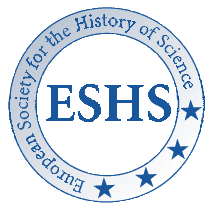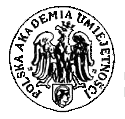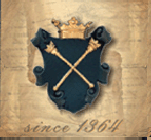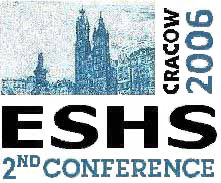Last modification: 24 Septemebr 2008
Online Book of Abstracts - A Thematic List:
SESSIONS / SYMPOSIA
Edited by Michal Kokowski
http://www.cyfronet.pl/~n1kokows/home.html
n1kokows@cyf-kr.edu.pl
Symposium R-1.
THE ROLE OF NATIONAL AND INTERNATIONAL SOCIETIES IN THE HISTORY OF SCIENCE
ORGANIZER & CHAIRMAN:
Robert Fox (Oxford, The Great Britain)
robert.fox@history.ox.ac.uk
R-1.
A Hole in the Iron Curtain:
The International Committee for the History of Technology (ICOHTEC)
as a Bridge between East and West, 1968-1990
Hans-Joachim BRAUN (Hamburg, Germany)
hjbraun@hs-hh.de
At its foundation in 1968 the main aim of the ICOHTEC was to provide a forum for historians of technology on both sides of the iron curtain. The first President was Eugeniusz Olszewski from Poland, the first Secretary-General Maurice Daumas from France, both eminent scholars. Over the years the ICOHTEC has developed a network which has increased ever since; it has provided vital impulses for advancing research areas such as sources in the history of technology, mining and metallurgy, the technical sciences and technical education or the relationship between science and technology.
My paper will try to identify the main themes and to assess their impact on research and international communication between scholars in East and West. But, although the person offering this paper is the current President of the ICOHTEC: This will not be an eulogy of the ICOHTEC, it will not be uncritical. The main issues will be: What has the ICOHTEC set out to do? What has the ICOHTEC achieved? What were its shortcomings and failures?
R-1.
Mathematicians of Polish Origin in Ukraine: Scientific and Pedagogical Activities of
A.P. Psheborskiy in Kharkov
Mathematical Society (1898-1922)
Nadezdha KUSHLAKOVA (Dniepropetrovsk, Ukraine)
Nadnick2004@mail.ru
Kharkov Mathematics Society (KMS) was established at Kharkov University in 1879. A lot of prominent scientists were involved in its activities and among them the famous mathematician of Polish origin A.P. Psheborskiy. It was his work 'Mathematics Society at Kharkov University' that was the first one devoted to the matter. A.P. Psheborskiy's scientific and pedagogical activities are not investigated to the full extent. So this article is devoted to their close study.
While doing our research we studied in detail extracts from the minutes and annual reports of KMS for the period from 1898 to 1922. It enabled to identify the directions and chronology of his activities more precisely.
Having being the member of the Managing Committee for over 20 years A.P. Psheborskiy devoted much of his time to his work in the society: he drew up the minutes, prepared the annual reports on KMS activities and financial statements, was responsible for accounting of the society's own funds, did correspondence with many research organizations and societies on behalf of KMS.
Besides A.P. Psheborskiy was an active member of KMS, subject matters of his reports proves the wide range of his scientific interest, varying from the theory of higher transcendental functions, methods of elliptic function theory, analytical function theory, variable calculus, differential geometry, theoretical mechanics, theory of relativity to methods of teaching mathematics, etc.
A.P. Psheborskiy's tribute to the development of activity and extension of KMS ties is hard to overestimate. It is due to his assiduous work that the detailed information on the emergence and early years of KMS activities survived to current time.
The membership and work in KMS, communication with Kharkiv mathematicians inspired A.P. Psheborskiy to do research in various branches of science.
R-1.
The Lisbon Academy of Sciences and the Development in Portugal in the 19th Century
Luis SARAIVA (Lisbon, Portugal)
mmff5@ptmat.fc.ul.pt
The Lisbon Academy of Sciences, founded in 1779, seven years after the very important reform of the Portuguese University, which created for the first time in Portugal a Faculty of Mathematics, had a very important role in the development of Portuguese mathematics in the 19th century. In the first half of that century, the only journal in Portugal where mathematicians could publish their papers was the Memoirs of the Academy. After realizing that the aims the Academy concerning science in general, and mathematics in particular, were far from being reached, and following the Academy's important reform of 1851, it decided to found new journals that would complement the work done by the Memoirs . After the short-lived Annaes de Sciencias e Lettras (1857-58), it founded in 1866 the Jornal de Sciencias Mathematicas, Physicas e Naturaes ("Journal of Mathematical, Physical, and Natural Sciences"). This journal was regularly published by the Academy until 1927. The Academy also published a Bulletin, which included the proceedings of its public sessions, which lasted until 1923.
From 1877 onwards, the mathematics panorama in Portugal changed in a qualitative and quantitative way with the founding of Francisco Gomes Teixeira (1851-1933) Jornal de Sciencias Mathematicas e Astronomicas .
In this talk we will analyze the journals of the Academy in the 19th century. In particular we will give an overview of its mathematics papers and its authors. We also analyze the quantitative and qualitative changes brought to Portugal with the publication of Teixeira's journal.




